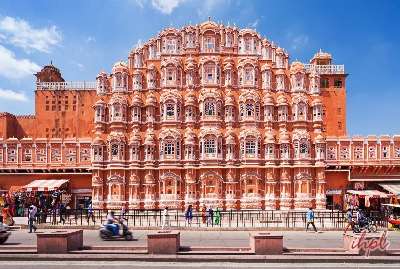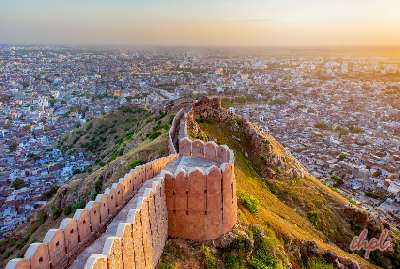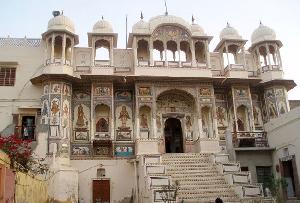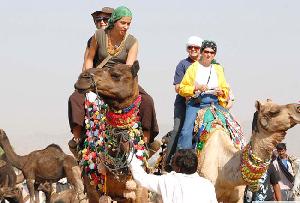Experience the grandeur of Rajasthan, a land of majestic forts, vibrant traditions, and timeless heritage. With 34 years of expertise, Indian Holiday brings you the best-customised tour packages and trusted local support, ensuring a journey as royal as Rajasthan itself.
Still, wondering why Indian Holiday is your best choice? Read this: Why Choose a Travel Comp Over an Online Booking Agent? Is It Expensive To Book Through A Travel Company?
The expanse of the Thar Desert of Rajasthan comes alive with the visual relief of its brightly dressed inhabitants; and when its dancers take the center stage, you just can’t stop tapping your feet. Featured in the Bollywood hit, Padmavat, the Ghoomar Dance Rajasthan is one of the most popular folk dances in Rajasthan.
Maharani Rajmata Goverdhan Kumari of Santrapur wanted to preserve and promote this traditional dance and thus, she opened ‘Gangaur Ghoomar Dance Academy’ in 1986. She was also awarded Padma Shri in 2007 by the Government of India for her contribution to the arts.
Explore 16 days Rajasthan tour with golden triangle, Indian splendor maharaja express
Rajasthani Ghoomar Dance
Ghoomar is a traditional folk dance of Rajasthan state and was initially performed by the Bhil tribe to worship Goddess Saraswati later, other communities adopted it. However, it is largely associated with the royal ladies of Jaipur, who perform it on certain auspicious occasions. The Kachhwaha Clan of Rajputs who ruled Jaipur defeated the Bhils and later acceded to peaceful coexistence.
It is therefore normal that the royalty would pick up some of the Bhil traditions and practices. The Ghoomar dance is essentially a women’s dance performed by the women for exclusively ladies’ gatherings. The women performing the Ghoomar Dance Rajasthan dance in circles.
As per the traditional rituals, a newly married bride has to perform Ghoomar Dance on being welcomed to her marital home. Other special occasions it is performed include festivals and religious occasions that last for hours.
Ghoomar Dance Attire
They are dressed in the traditional ghagra and choli with chunaris. They deck up in traditional silver jewelry and glass bangles. The Ghoomar is performed during women’s gatherings like the ritual of Haldi during a wedding, or to entertain a queen in her personal quarters, etc.
Browse through our Rajasthan Tour Packages from Pune
History of Ghoomar Dance
The Bhils were an indomitable war-like tribal race. Initially, they made the highways and roads dangerous places for Jaipur’s traders and commoners. Whenever the Kachhwahas tried to discipline them, they simply disappeared into the nooks and corners of the Aravallis which have been their home for centuries. Realizing the futility of this exercise, the Kachhwahas sued for peace and exempted the Bhils from paying tribute which was, however, not a very big deal since the Bhils were most unlikely to pay. In any case, after this incident, the Kachhwahas accepted the Bhils as friends of the royalty.
To book a Rajasthan tour, contact Indian Holiday today. Plan your trip with travel experts as per your interests and budget.
Check out Udaipur Tour Packages, Mount Abu Tour Packages, Jodhpur Tour Packages, Rohet Tour Packages












